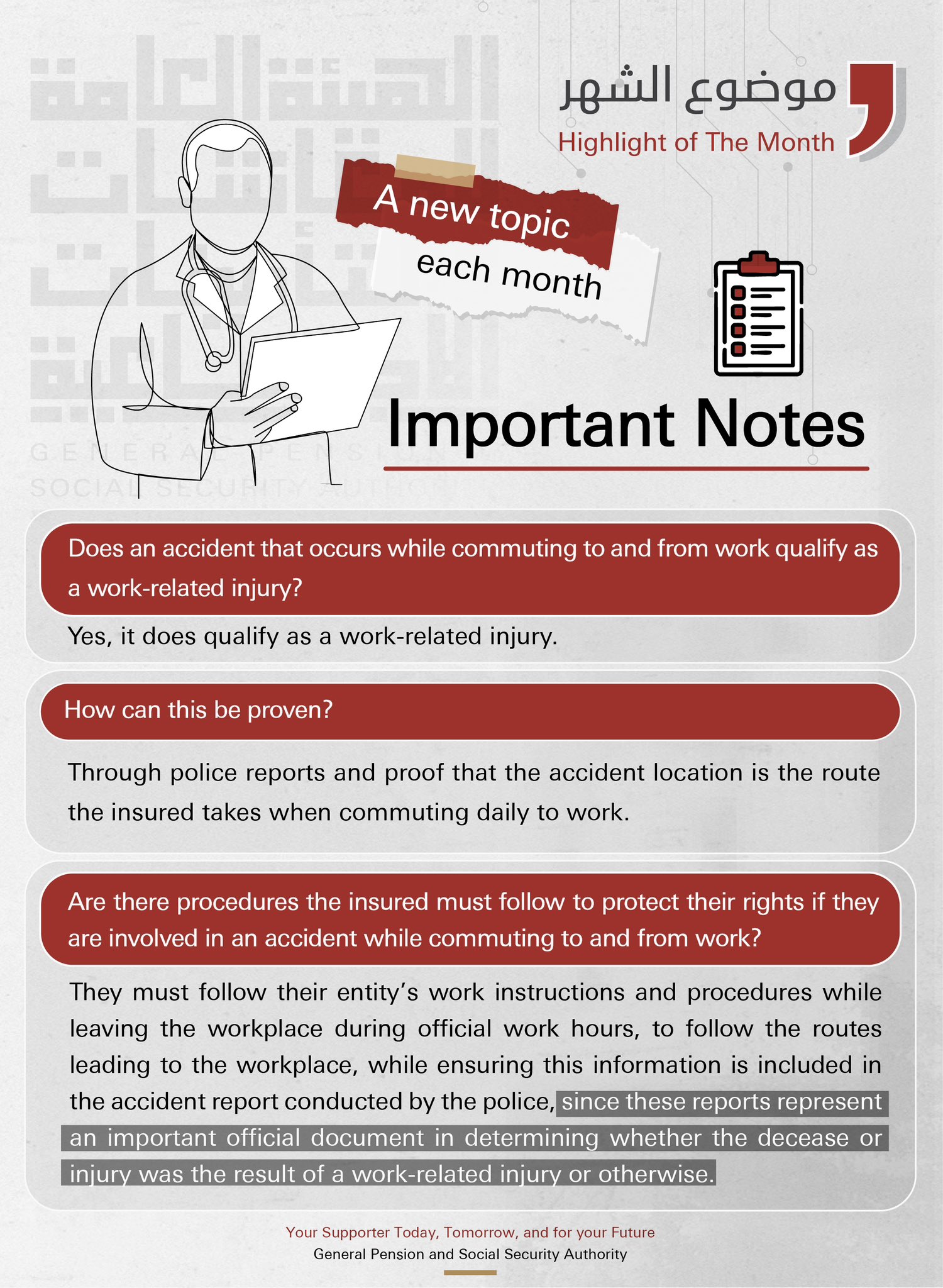
GPSSAAE classifies daily commute accidents as work-related injuries
Other employee benefits#HRCommunity#Health & Safety
In a significant move, the General Pension and Social Security Authority (GPSSA) of the United Arab Emirates has classified daily work commute-related accidents and injuries as work-related.
And also clarified that all insured Emiratis and their beneficiaries can claim compensation if it is proven that the injury occurred while commuting to and from work or due to a work-related cause.
A work-related injury encompasses accidents during work or while commuting to the place of work, diseases caused by the nature of the work, injuries or death resulting from negligence of work safety rules, or death due to work-related fatigue or stress.
“Yes, it does qualify as a work-related injury,” confirmed GPSSA in its Highlight of the Month series—an initiative launched to raise public awareness around specific insurance concerns by offering comprehensive and detailed explanations each month.
The authority also noted that all such claims can be proved with “police reports and proof that the accident location is the route the insured takes when commuting daily to work.”
The authority also advised all the insured individuals to follow workplace policies, maintain accurate attendance records, and adhere to commute procedures to protect their rights – “must follow their entity’s work instructions and procedures while leaving the workplace during official work hours, to follow the routes leading to the workplace, while ensuring this information is included in the accident report conducted by the police, since these reports represent an important official document in determining whether the decease or injury was the result of a work-related injury or otherwise.”

As a result, insured Emiratis and their beneficiaries are entitled to compensation if it is proven that the injury occurred while commuting to and from work or due to a work-related cause.
Furthermore, if the accident-related injury unfortunately results in the death or total disability of the insured employee, they or their beneficiaries will be entitled to a pension payment—regardless of the individual’s length of service. “This pension is calculated at up to 100% of the insured’s pensionable salary, provided the individual has completed 35 years of service,” the authority underlined.
As per the Federal Law No. 7 of 1999, beneficiaries of an insured Emirati are entitled to Dh75,000 compensation if the death or total disability is proven to be work-related. And where the insured employee suffers partial disability, compensation is paid based on the percentage of disability.
Additionally, the regulation states that compensation will be denied in all cases where it is found that the accident/ injury was self-inflicted, caused by prohibited substances, or due to violation of safety rules.
As per a GPSSA report published on May 13, 2025, it recorded “130 work-related injuries/disabilities this past year (2024) that led to unexpected retirements,”
And further added that, “An Emirati who wishes to retire due to a disability or a work-related-injury may do so after a thorough medical investigation is conducted and approved by the concerned medical committee, which can only be done once an employee’s entity fulfills the required procedures,
You may also like:
- Omran Group’s Hilal Al Jadidi shares strategies for future-ready HR, leadership, and talent
- Dubai issues new rule to strengthen integrity and employee rights in public sector
- The hidden cost of tech: Where are ethics, governance, and compliance?
- Why do employers fail to retain Emirati talent? Study finds key challenges
- Is fake recruitment on the rise in the Gulf? The Kuwait Airways job fraud case
If an individual is deemed unfit to work, both government and private sector employers are expected to fill out a ‘Work Fitness Assessment’ application that can be located on GPSSA’s Ma’ashi digital platform in order to ensure a retirement decision is fairly taken,”
In 2024, the authority received a total of 479 Work Fitness Assessment applications, of which 130 were approved based on medical criteria for disability and unfitness to work.









